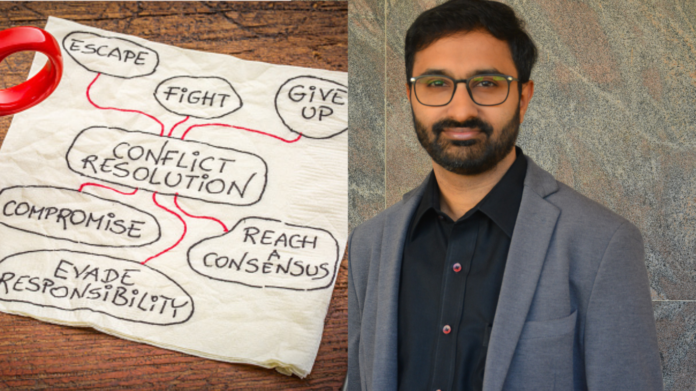We’ve always known of law and justice, and often criticized the justice delivery systems- court settlements for being too slow and out-of-court settlements for being too expensive. How does someone, who has none, neither way too much time nor a bag full of money, get their due and resolve ongoing disputes?
Well, Online Dispute Resolution (ODR) has recently become the “gap-bridger”, making dispute resolution affordable and accessible for everyone in India.
“ODR achieves the accessibility of ADR, so it takes dispute resolution to the masses.” Elaborating further, Mr. Kinhal says, “ADR had become a rich man’s game and people with deep pockets were able to afford that. ODR resolves disputes at scale, leverage technology, use data, and make dispute resolution quick, accessible, and affordable.”
Talking about the “quickness” of the ODR process, Kinhal claims that disputes that go on for several years in court can be resolved with CORD over a span of 40-50 days. Looking to achieve this kind of positive impact, CORD provides ODR services at prices as low as Rs 3,500 per case. Emphasizing the expensive aspect of ADR, Kinhal explains how with ODR’s low costs, the fees actually decrease as the complexity of each case increases. This, therefore, makes it a cost-effective process, not weighing too heavy on one’s pockets.
Upon being asked about the appointment of an arbitrator for each case, Kinhal says,
“The court takes about 6 months to appoint an arbitrator, we do it within one day. The technology automatically shortlists arbitrators, chooses the right arbitrator for a given case and the arbitrator is informed about the appointment.”
The process in itself is so quick that no one, as per Kinhal, asks for fast-tracking of case(s).
However, even with affordable and accessible dispute resolutions, one of the several issues that crop up in the minds of people is the legality of ODR in India. A major confusion that still prevails is, how can an ODR proceeding commence at the instance of one party? Clarifying this, Mr. Kinhal says,
“The seed of everything is the contract itself. The dispute resolution clause in the contract would give one or both parties the power to appoint an arbitrator. So the unilateral appointment of arbitrator has become null and void, so it becomes important for a neutral third entity to come and participate in the process even to appoint an arbitrator.”
He further explains,
“CORD has no interest in the outcome of the dispute. CORD is completely neutral to both the parties, and that’s when CORD can actually, legally appoint an arbitrator. So once CORD appoints an arbitrator, the information is shared to both the parties, facilitating the dispute resolution process. That’s where the neutrality comes into picture.”
Talking about the difference of opinions across courts, with some courts recognizing the legality of the ODR process and others still contemplating the entire mechanism, Mr. Kinhal stresses that it’s a debate for the law to have.
Diving deeper into the subject, Mr. Kinhal also explains how an online dispute resolution process can be commenced only between contracting parties. So, if it’s a dispute without any evidence of the parties’ intent to enter into a contract, ODR can be of little help in such situations.
This being an interesting time to move towards greater and better use of technology, the future of ODR in India, and more so its power to generate multiple revenue streams through its technological aspect.
About the Founder
Mr. Badarivishal Kinhal, Founder, CORD, is an electronics engineer by profession and an alumnus of Ramaiah College, Bangalore. To understand better the realms of entrepreneurship, Mr. Kinhal took up an Entrepreneurship and Innovation course with Stanford Ignite, an academic program by Stanford University. Mr. Kinhal also undertook an Acceleration Program with UC Berkley.
Passionate about CORD, the baby that he spends most of his time with, Mr. Kinhal’s understanding of the concepts of technology and legal aspects of ODR is immense. His interest in law comes from being in a family of lawyers. Badarivishal co-founded CORD, a Bangalore-based Online Dispute Resolution Institution in 2019 with an aim to make justice accessible through technology. CORD not only provides an online platform to resolve disputes but also provides technology-enabled services in the field of Alternative Dispute Resolution. Badarivishal also has a deep interest in theatre. When he is not building legal-tech solutions, he is either performing, writing, or directing plays.






